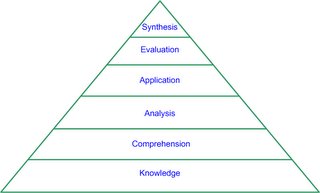More on Resumes and Interviewing...

Scott Mark asked that I post on resume points that I consider important and figured I would discuss a few thoughts on interviewing too.
THE RESUME
There are two types I see most frequently...chronological (I worked here, then here, then here) and functional (this is the kind of work I have been involved with). It's really up to personal preference (avoid the hot pink paper) but I recommend stepping back and considering if YOU were hiring YOURSELF which version works: have you had 4 jobs in the last year? (consultants excuse that last comment please) Have you had several different roles at one company for many years?
Four things I encourage folks to consider:
a) Spell Check...as much as this sounds obvious, I do see resumes with typos and grammatical errors. Read your resume bottom-to-top (backwards)...you will see your grammar differently. Last but not least, ask someone you trust to give honest feedback review and critique.
b) Real estate... least number of pages required to sell yourself. Some people say 1 or less than 3...use good judgment and careful with abusing margins and font size.
c) Which points do you want to consume the most real estate? I worked for 3 years in high school at a grocery store, probably not the topic I want to write a lot about...unless Fred's Food-o-Rama needs an Architect. The length of details you provide on a position should decrease as you go back in time. Ask yourself after having re-read your resume 3 times: What one unique message, talent, or theme do I want my audience to remember about me? (even if you do not get the position this time..having a memorable hook may open a door later on)
d) Know you audience. If you do not know who is interviewing...Ask! If your audience is HR or General Management, having grainy techno-babble may not work. If a potential peer is interviewing having some clear technical references using common industry terms may help sell your skills.
*** DO NOT BUY YOUR RESUME!!! ***

I do feel strongly about writing your own resume. It's your story...you should tell it...use your words. I do encourage getting feedback from others and reusing sentence fragments that resonate for your experience. If you lack the skills required to write effectively its only going to become apparent later on when you get hired. If you have a glorious resume that is so pretty its almost artful...and that resume does not reflect your voice during the interview...it will show. You will get 1 point for having a good resume but -1 point for confusing the interviewer. A power resume may get you an interview, but assuming you have the necessary talent and motivation to do the desired job...a resume that accurately portrays who you are will improve your chance of me recommending you for hire.
Okay, so right now I feel a bit guilty, because I am not the best from a grammar perspective. I admit (on occasion), slipping into passive voice, not having enough spaces after my periods, abusing my periods-of-ellipses (kind of my trademark style) or duplicating the work "the" across lines...I am human after all...but I would not make the same mistakes on my resume.

THE INTERVIEW
Five things I encourage folks to consider:
a) Be yourself. Its how you are most comfortable. Don't be a poser. I remember a manager who hired this well-groomed guy with a suit and tie ...first day of work out came the messy hair and baggy skate boarder clothes. If you want a job where you can wear baggy skate boarder clothes...don't wear a suit to the interview! Hello!!
b) Smile and make eye contact. Big shocker, not the first person to advise this...its clearly a borrowed concept. I have interviewed people who wouldn't maintain eye contact...and remember one where this woman stared at me the whole time. Weird. Have the confidence to maintain a professional conversation or go flip burgers.
c) Be prepared to discuss the standard interview questions and also have the facts about your recent work ... avoid referencing own resume during the interview unless you are directlyng the interviewer to topic. Do not come off as a "yes man" , have a positive attitude, show them you are a team player, and explain how you are self-motivated.
d) Ask questions. As much as interviews are designed to convince the interviewer you are the best candidate for the position, make sure you understand the position and talent being expected. Most people can cope with a bad fitting job for a while, but let's not waste each others time here. Asking questions demonstrates interest, furthers the dialogue, and alludes to an inquisitive personality which most IT positions require.
e) Follow-up with a thank note. This may seem old-school, but it demonstrates manners which are always a plus.
Finally a few special notes for the architects...
a) Do not sell me on EA, tell me what your viewpoint on EA is...
b) Do not sell me on how you've implemented SOA, tell me about the challenges and what aspect are most important to you...
c) Not every service needs to be a web service, tell me you understand this concept...
d) UML is good, Visio is good, RUP is okay, Agile is okay...tell me about how you apply them to architecture and that you are not hung up in documentation.
Comprehension comes from our discussions not documents.
Good Luck!






